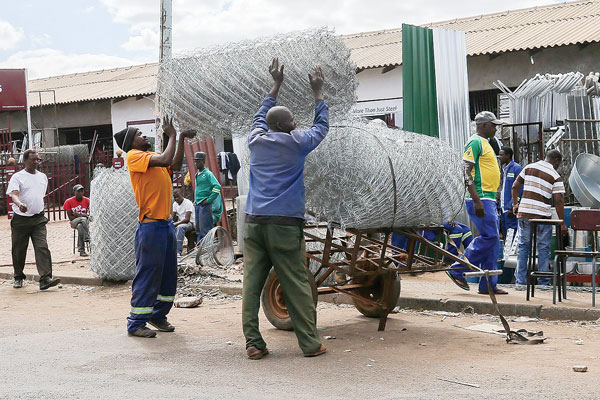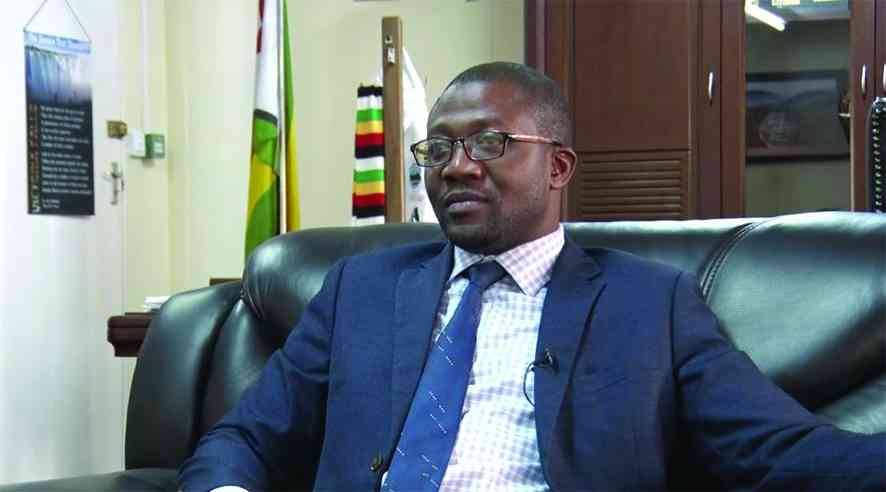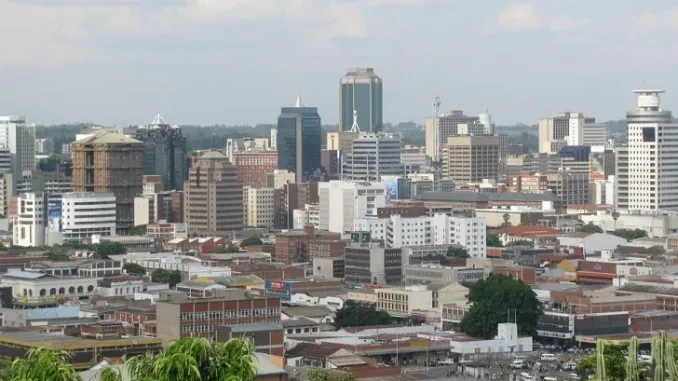
BY MTHANDAZO NYONI
ZIMBABWE has been going through difficult times economically due to a combination of factors, some of them man-made.
The southern African nation is currently experiencing an acute shortage of foreign currency, prolonged power cuts of up to 18 hours a day, policy inconsistencies, among others.
In this article, NewsDay Business seeks to examine some of the major challenges businesses have been enduring since the beginning of the year with a view of coming up with possible solutions.
Policy inconsistency
Since President Emmerson Mnangagwa’s administration came into office, Zimbabwe has been experiencing policy inconsistencies and discord which characterised the late President former President Robert Mugabe’s government, pushing away foreign direct investment as a result.
Statutory instruments on monetary policy are issued on a quarterly or monthly basis, countering each other to the amazement of investors.
Even though government banned the use of foreign currency for domestic transactions, petroleum companies, chrome miners, non-governmental organisations, embassies and multinational corporations operating locally can use foreign currencies for local transactions.
- Chamisa under fire over US$120K donation
- Mavhunga puts DeMbare into Chibuku quarterfinals
- Pension funds bet on Cabora Bassa oilfields
- Councils defy govt fire tender directive
Keep Reading
This also applies to payment of import duty for certain commodities classified as luxuries by the government.
Businesses and economic analysts say policy inconsistency will further cripple the southern African country’s economy.
“We still have significant policy inconsistences within our economy and by so doing we are chasing away capital. Capital reads what is on the ground. It has to be attracted,” economic analyst Persistence Gwanyanya said.
“Policy inconsistency must change as a matter of urgency. What is more worrying is that it happens everywhere in government and it speaks of our failure to deal with economic fundamentals. We do trial and error a lot.”
To avoid policy inconsistency and discord, Gwanyanya said government should extensively consult the people before coming up with a policy.
“When we are planning, we should have people in mind. We are not moving as one people. There is lack of oneness in the country. When people are divided, there is nothing you can do,” he said. Association for Business in Zimbabwe chief executive officer, Victor Nyoni said it was boggling the mind that some businesses were allowed to sell in foreign currency while others were not.
“Why treating businesses differently? That creates serious challenges despite the language being right and correct. It also brings about policy inconsistency and makes the business environment not conducive. We need equal treatment. Policies should be consistent and sharp,” he said.
Incompetent ministers
Some ministers in Mnangagwa’s administration seem to be working against his economic revival agenda. For instance, some of the deals meant to revive the economy are being frustrated and cancelled under unclear circumstances, further creating perceptions that Zimbabwe is not open for business.
Recently, government through the recommendation of Transport minister Joel Biggie Matiza, cancelled the US$400 million deal with the Diaspora Infrastructure Development Group (DIDG) for the recapitalisation of the National Railways of Zimbabwe (NRZ), claiming the consortium had failed to show it had the financial backing to complete the project. But some reports indicate that Matiza wants to award the tender to his own “people”.
As if that was not enough, former Industry minister Nqobizitha Mangaliso Ndlovu, who is currently Tourism minister, saw Lancashire Steel deal collapsing under his watch. The deal, which was a joint venture between Kwekwe-based Lancashire Steel and Botswana-based investor Whinstone Enterprises, collapsed with investors accusing government officials of frustrating it. Ndlovu, like Matiza, claimed the investor had failed to meet the expected requirements. The biggest question remains, when will government be serious about reviving NRZ and Lancashire Steel? Why has it taken government so long to revive these entities? The revival of these entities means a lot to the country’s economic revival, hence bickering over them would make it even difficult to attract more meaningful investors. No sane investor would like to invest in a directionless country where ministers put their interests first. Mnangagwa as Zimbabwe’s chief executive officer should whip his employees into line. The economy is bleeding and requires urgent attention. If these deals were to be implemented on time, Zimbabwe’s economy would be better off by now taking into consideration the importance of the NRZ and Lancashire Steel in the economy. Rail and steel sectors are some of the country’s key economic drivers.
Corruption
Corruption in Zimbabwe has become endemic within its political, private and civil society sectors, with the country ranking 160 out of 175 countries in the 2018 Transparency International Corruption Perceptions Index. Efforts to eliminate the scourge remain elusive with nothing being done to bring the culprits to book with “catch and release” game being the order of the day. The findings of the 2018 Auditor-General’s report unearthed rampant cases of corruption in both government departments and State-owned enterprises, but nothing has been done to the perpetrators.
“Corruption thus remains an underlying cause of underdevelopment and the socio-economic crisis bedeviling Zimbabwe. There is need for government to show commitment towards combatting corruption through ensuring transparency and accountability in the administration of public funds,” the Zimbabwe Coalition on Debt and Development said.
Lack of competitiveness
In a bid to accelerate the economic development agenda, government came up with the Zimbabwe Investment and Development Agency. Though the policy is good, implementation pace is worrying. Businesses are still facing a plethora of legal bottlenecks; many regulations negatively affect competitiveness of local products both on the domestic and foreign markets. Zimbabwe was ranked 128th out of 140 countries in the 2018 Global Competitiveness Report.
Electricity and energy challenges
Fuel and power challenges have become permanent problems affecting local industry. For example, industries are enduring prolonged power cuts of up to 18 hours a day, crippling production in the process. Zimbabwe National Chamber of Commerce Matabeleland chapter chairperson Brighton Ncube said the situation was unsustainable.
“Companies are currently running production on generators nine hours on a daily basis which translates to 150 litres per day, 750 litres per week and 3 165 litres of diesel per month. To put it in monetary value, running a generator costs around $53 805 per month,” he said.
Ncube said production had been significantly affected due to unavailability of fuel and electricity.
Low confidence
Zimbabwe is failing to attract meaningful investment due to lack of investor confidence, largely stemming from government’s policy inconsistencies, failure to respect property rights as well as failure to come up with sound monetary policies. In 2016, for instance, central bank governor John Mangudya forced people to accept bond notes, claiming they were meant to ease “change challenges” as well as for export incentives. But what happened thereafter? People lost their savings through statutory instruments. As such, government should address the confidence deficit in the country; otherwise its hope of attracting meaningful foreign direct investment would remain dead in the water.
Foreign currency shortages
Another elephant in the room is the shortage of foreign currency, a situation that has hampered the viability and threatened the survival of many companies in Zimbabwe. Government is also struggling to import critical requirements like drugs and fuel. In a bid to ease forex challenges government came up with an interbank market system. However, the system is still struggling to address the challenges, with businesses claiming they were not accessing forex through it. They have called upon government to further fine tune it. Also as a way of solving foreign currency shortages in the economy, some economic analysts have urged government to fully embrace online forex trading.
Online forex trading can be explained as a network of buyers and sellers, who transfer currency between each other over the internet at an agreed price. The industry has gained enormous popularity in recent years among laymen due to the growth of online brokers and the technological development of online trading platforms. It has become one of the world’s largest markets generating over US$7 trillion a day while in London alone, over US$2,7 trillion is exchanged through the virtual platform. Developed countries like the United States of America, China among others have embraced the industry, while in Africa, countries such as South Africa and Nigeria have also taken up the world’s lucrative sector.
South Africa even came up with the Financial Services Conduct Authority, an independent component that acts as the country’s regulator for all non-banking financial firms. The watchdog helps forex brokers establish themselves in the country as well as gain the trust of high-profile investors.
But Zimbabwe, which is currently struggling to bring in foreign currency into the country due to obscure investment policies as well as poor production, has not yet come up with a legal framework for online forex and binary options brokers.











